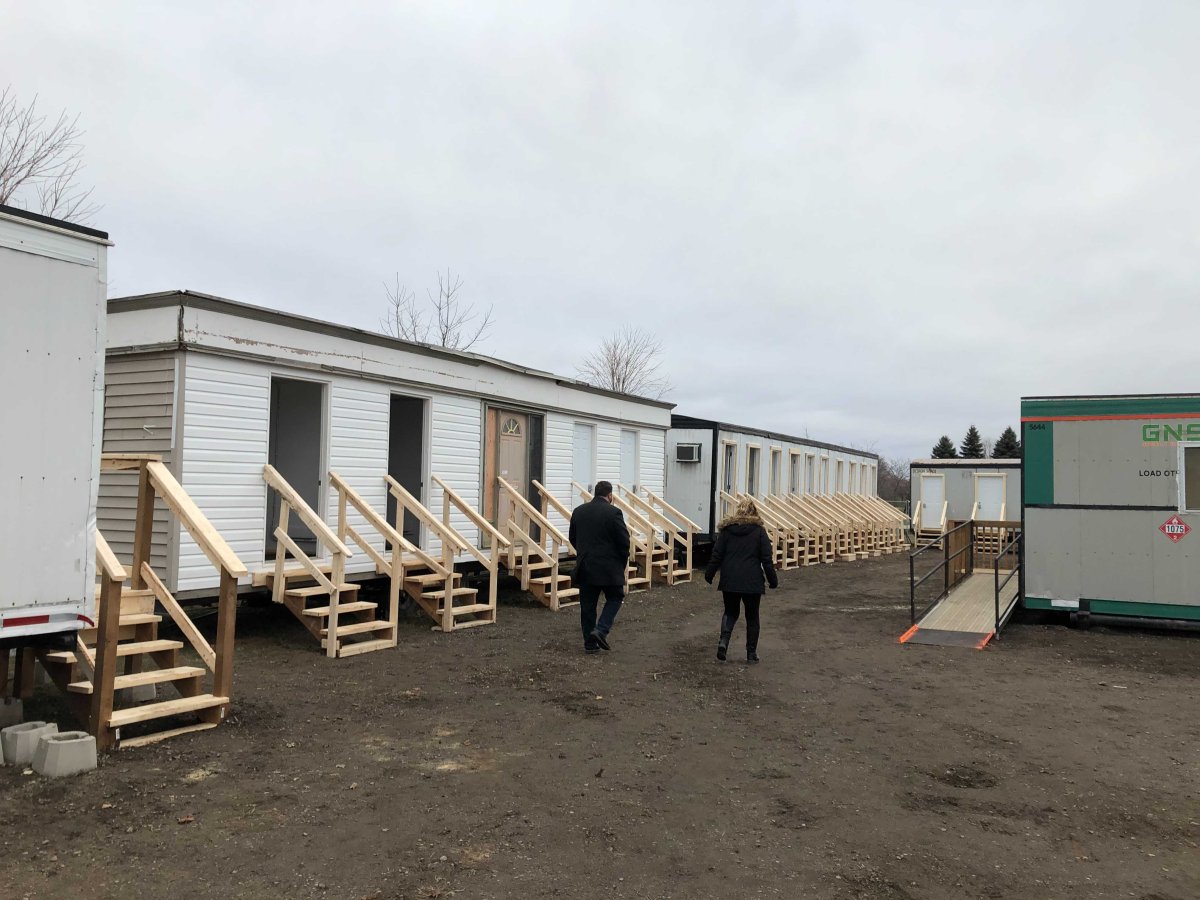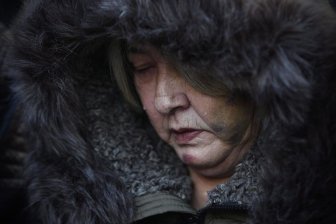A proposal will go before the Community and Protective Services Committee next week to extend part of the City’s 2020-2021 Winter Response Program for Unsheltered Individuals in order to help more Londoners access permanent housing.

Civic administration is recommending the extension of an overnight space at 415 York St. until June to shift the Winter Response to focused transitional housing for 25 individuals who are “highly engaged” towards finding permanent housing.
The proposal is also recommending extending a temporary day space at 525 Hamilton Rd. to provide a continuity of care for those that otherwise are unable to attend other community programs and services.
The recommendation is to extend both programs until the end of June.
“Hopefully that 60 days gives us a little bit more runway to help connect them to some housing supports,“ said managing director of housing, social services and Dearness Home, Kevin Dickins.
Whereas in past years the City’s winter response relied on shelter system and volunteer groups overextending capacity limits, Dickins said this past winter they had to create more spaces in hotel rooms and create up shelter sites due to COVID-19.
“We had never used hotels prior to that and the only reason we use hotels this winter was because the shelters were unable to accommodate everybody,” Dickins said.
- What is a halal mortgage? How interest-free home financing works in Canada
- Capital gains changes are ‘really fair,’ Freeland says, as doctors cry foul
- Ontario doctors offer solutions to help address shortage of family physicians
- Budget 2024 failed to spark ‘political reboot’ for Liberals, polling suggests
Dickins said through the new model they were able to better connect with unsheltered individuals and build up relations to work towards getting them set up with resources to get permanently housed.
“We didn’t have a great deal of turnover in some of the hotels, as you would in a traditional shelter, where people are gone all day and then potentially a different group of people come back,” he said.
“The organizations, the staff, and hotels did a great job building relationships, building trust, building rapport and that type of thing goes a really long way when you’re trying to engage with a population that has grown to distrust the system.”
Throughout this year’s winter response, 75 individuals were supported with hotel spaces, five of which have been housed, 23 were matched with a housing support program, and 23 currently in consideration for housing units this month.
Through the Winter Response Program, they were able to get 36 individuals fully paper ready while continuing to work with the other individuals to get them set up with the documentation needed to get housing.
Dickins said not having to worry about where your next meal was coming from and having a place to keep your belonging safe decreased a lot of stress and anxiety for residents so they were in better headspaces to talk about what comes next.

The cost of extending both programs from May 1 to June 30 is $376,000. The proposed extension on some programming and rep on the Winter Response will be presented to the Community and Protective Services Committee on Tuesday.
From March 2020 to March 2021 the City has shifted homeless response to open up more hotel rooms to compensate for reduced shelter capacity during the pandemic.
Through that program 944 individuals experiencing homelessness supported in hotels over the past year, including vulnerable individuals requiring social distance space, Monitoring Space, Indigenous culturally appropriate space, and violence against women sector participants.
Of the 944, 935 were made paper ready to ensure people have the identification, source of income information, and any other documents required to obtain housing.
In the last year, a total of 101 individuals were also matched to the housing first program and 195 people secured permeant housing.
Starting in April and continuing into May, those in high-risk congregate living settings like shelters or those on the street will be prioritized for COVID-19 vaccines.
Dickins said they are in the process of organizing mobile clinics to help in vaccine duration.
“So we’ll be looking to use a mobile clinic that will go to where people are out, starting with some of our congregate living settings and working with those that are sleeping on shelters so that we can start to get them vaccinated,” Dickins.









Comments